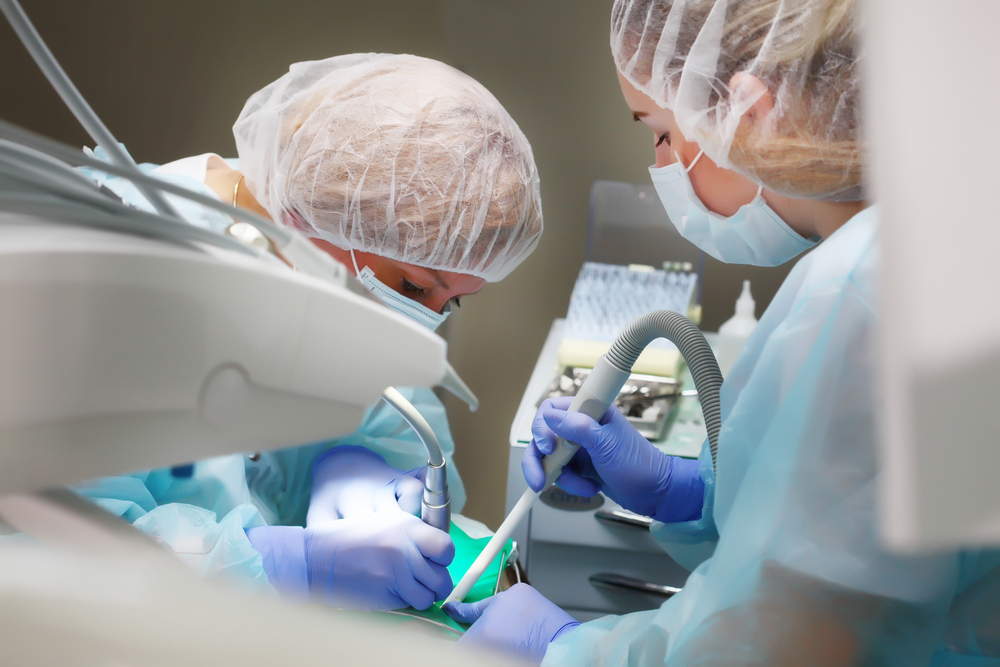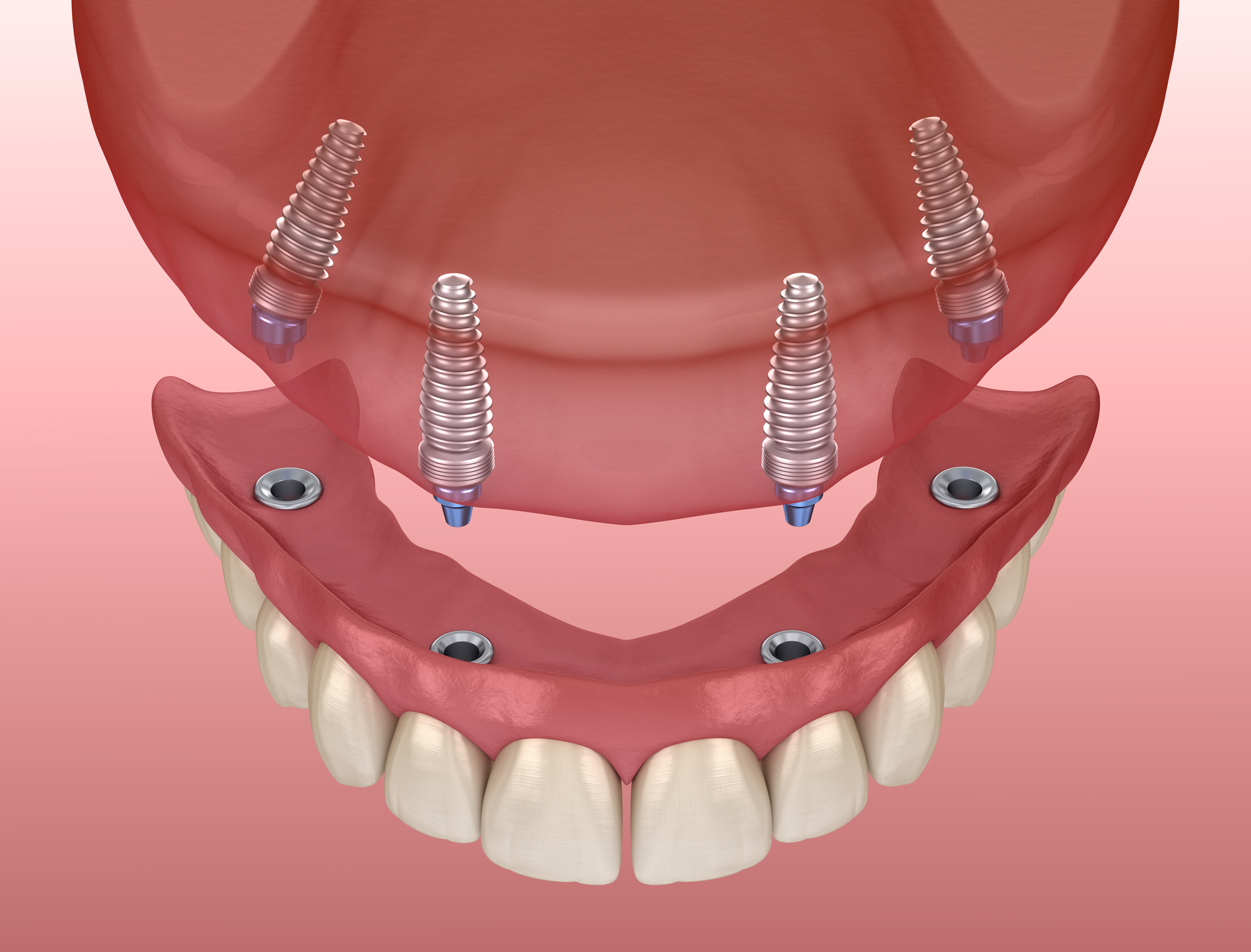Unbeknownst to many, our jaws are not immune to infections. Yes, you read that right! The jaw, a seemingly sturdy and unyielding part of our body, can fall prey to various types of infections that can cause pain, discomfort, and even serious health risks. From abscesses to septicemia and everything in between, infections of the jaw can be a real cause for concern. But fear not! In this blog post, we will delve into the world of jaw infections – what they are, what causes them, how they can be treated or prevented – so you can arm yourself with knowledge and keep your pearly whites safe from any potential harm. So let’s dive right in and explore this fascinating yet often overlooked aspect of oral health!
What is an infection of the jaw?
An infection of the jaw, also known as odontogenic infection or
dental abscess, refers to a bacterial infection that affects the structures within the jaw. It typically occurs when bacteria enters through a cavity or crack in a tooth and spreads to surrounding tissues. This can lead to an accumulation of pus, causing pain, swelling, and inflammation.
There are different types of infections that can affect the jaw. One common type is a
periapical abscess, which occurs at the tip of a tooth root and is often caused by untreated tooth decay or trauma. Another type is periodontal abscesses, which occur in the gum tissue and may be caused by gum disease or food particles getting trapped between teeth.
In some cases, these infections can spread beyond the jawbone into other areas of the body through blood vessels or lymph nodes. This condition is known as septicemia or bacteremia and can have serious health consequences if left untreated.
It’s important to note that certain factors increase the risk of developing an infection of the jaw. Poor oral hygiene practices, such as not brushing regularly or neglecting dental check-ups, can create an environment where bacteria thrive. Additionally, conditions like immunosuppression (weakening of immune system), diabetes, smoking habits etc.
If you suspect you have an infection in your jaw area, it’s crucial to seek medical attention promptly. A dentist will perform a thorough examination, potentially take X-rays, and diagnose the infection. They may prescribe antibiotics and other treatments depending on the severity of the condition.
This will help determine the extent of the infection and develop an appropriate treatment plan tailored to your specific needs. Depending on severity, the treatment may involve draining the abscess, root canal therapy, or even surgery.
The different types of infections of the jaw
Infections of the jaw can occur in various forms, each with its own set of symptoms and risks. Understanding the different types of infections is crucial for early detection and appropriate treatment.
One common type of infection is a dental abscess. This occurs when bacteria invade the tooth’s pulp, leading to an accumulation of pus. Symptoms may include severe toothache, swelling around the affected area, and difficulty opening the mouth fully.
Another type is osteomyelitis, which affects the bone tissue in the jaw. It often arises from a neglected dental infection or trauma to the jawbone. Osteomyelitis can cause intense pain, fever, facial swelling, and even drainage of pus through gum openings.
Septicemia is a serious complication that can result from untreated infections in the jaw or other parts of the body. Bacteria enter bloodstream causing widespread inflammation leading to sepsis – a potentially life-threatening condition if not promptly treated.
Other types include Ludwig’s angina (a rapidly spreading infection affecting neck and floor of mouth), periapical abscesses (infection at tip/base root canal) etc., all having their unique characteristics demanding immediate medical attention.
By recognizing these different types of infections that can affect our jaws , we increase our chances for early intervention to prevent complications from developing further!
Causes of infections of the jaw
Causes of infections of the jaw can vary, but they often stem from underlying dental issues or poor oral hygiene. One common cause is a tooth abscess, which occurs when bacteria enter the pulp of the tooth and cause an infection. This can happen due to untreated cavities, cracked teeth, or gum disease.
Another potential cause is a dental injury or trauma that breaks the skin and allows bacteria to enter the jawbone. Fractured jaws, knocked-out teeth, or even piercing injuries can lead to infections if not properly treated and cleaned.
In some cases, infections in other parts of the body may spread to the jaw through the bloodstream. This is known as septicemia and can occur with conditions like endocarditis (infection of heart valves), sinusitis (infection in sinuses), or osteomyelitis (bone infection).
Additionally, certain medical conditions such as diabetes or weakened immune systems can make individuals more susceptible to developing infections in their jaws.
It’s important to note that maintaining good oral hygiene practices and promptly addressing any dental issues are crucial for avoiding these types of infections. Regular brushing and flossing along with routine visits to your dentist can help prevent complications that may lead to jaw infections down the line.
If you experience symptoms such as severe pain in your jaw, facial swelling, difficulty opening your mouth fully, fever, or pus drainage near a tooth or gum area – it’s essential to seek prompt medical attention from a dentist or doctor specialized in oral health care. They will be able to diagnose and treat any potential infection before it worsens.
Remember that seeking professional help early on can prevent further complications and potentially save you from prolonged discomfort associated with jaw infections.
Treatment options for infections of the jaw
When it comes to treating infections of the jaw, there are several options available depending on the severity and underlying cause of the infection. In mild cases, antibiotics may be prescribed to help combat the infection and reduce inflammation. These medications can be highly effective in killing bacteria and preventing further spread of the infection.
In more serious cases, such as an abscess or septicemia, drainage may be necessary to remove pus or infected material from the affected area. This can often provide immediate
relief from TMJ disorder. In some instances, surgery may be required to remove any dead tissue or repair damage caused by the infection.
Pain management is also an important aspect of treatment for jaw infections. Over-the-counter pain relievers like ibuprofen can help alleviate discomfort while waiting for other treatments to take effect.
Additionally, maintaining good oral hygiene practices is crucial in preventing and treating jaw infections. This includes regular brushing and flossing, along with routine dental check-ups.
It’s important to note that treatment options will vary depending on individual circumstances and should always be discussed with a healthcare professional. They will assess your specific condition and recommend appropriate treatment options tailored to your needs.
Prevention of infections of the jaw
Preventing infections of the jaw is crucial for maintaining optimal oral health and overall well-being. Here are some effective preventive measures you can take to reduce the risk of developing these painful and potentially serious conditions.
1. Practice good oral hygiene: Brush your teeth at least twice a day with fluoride toothpaste, floss daily, and rinse your mouth with an antiseptic mouthwash to remove plaque and bacteria that can lead to infections.
2. Visit your dentist regularly: Regular dental check-ups allow early detection of any potential issues in your oral cavity, including infections or abscesses in the jaw. Your dentist will be able to provide appropriate treatment before the infection progresses.
3. Avoid tobacco use: Smoking or chewing tobacco not only increases your risk of developing oral cancer but also weakens your immune system, making it harder for your body to fight off infections.
4. Maintain a healthy diet: Eating a balanced diet rich in vitamins and minerals helps boost your immune system’s ability to fight off infections. Limiting sugary foods and beverages also reduces the growth of harmful bacteria in the mouth.
5. Protect yourself from injuries: Use protective gear such as mouthguards when participating in contact sports or activities that pose a risk of facial trauma. This can help prevent fractures or other injuries that may lead to jaw infections.
By following these preventive measures, you can significantly reduce the likelihood of developing infections of the jaw and maintain optimal oral health!
When to see a doctor for an infection of the jaw
When it comes to infections of the jaw, knowing when to seek medical attention is crucial for prompt and effective treatment. If you experience any signs or symptoms that could indicate an infection, it’s important not to ignore them.
One clear indication that you should see a doctor is if you have persistent pain in your jaw. This could be accompanied by swelling, redness, or tenderness in the affected area. Difficulty opening your mouth fully or experiencing problems with chewing and speaking are also signs that warrant medical attention.
Additionally, if you notice any drainage from the site of the infection, such as pus or blood, it’s essential to consult a healthcare professional immediately. Other concerning symptoms include fever, chills, and general fatigue.
If left untreated, infections of the jaw can lead to serious complications such as abscesses or septicemia (blood poisoning). To prevent these risks and ensure proper diagnosis and treatment, visiting a dentist or oral surgeon promptly is vital.
Remember: Relief from TMJ disorder starts with understanding its causes and finding effective treatments! And don’t forget: Regular screenings are key to early detection of
oral cavity cancer!
Conclusion
Infections of the jaw can be a serious and painful condition that should not be ignored. Whether it is an abscess, septicemia, or another type of infection, seeking prompt medical attention is crucial for proper diagnosis and treatment.
The various causes of jaw infections include dental issues such as tooth decay or periodontal disease, trauma to the mouth or face, compromised immune system, and poor oral hygiene. It’s important to address these underlying factors to prevent future infections.
Treatment options for jaw infections may vary depending on the severity and cause of the infection. Antibiotics are often prescribed to combat bacterial infections while more severe cases may require surgical intervention such as drainage or extraction of affected teeth. Seeking professional dental care is essential in managing these conditions effectively.
Prevention plays a crucial role in avoiding jaw infections. Maintaining good oral hygiene by brushing twice a day, flossing regularly, and visiting your dentist for regular check-ups can help keep your teeth and gums healthy. Promptly addressing any dental issues such as cavities or gum disease can also minimize the risk of developing an infection.
If you experience symptoms such as severe pain in your jaw area, swelling, fever with chills, difficulty opening your mouth fully or swallowing food comfortably – it’s important to seek immediate medical attention without delay. Early detection and timely treatment can prevent complications from arising.











